|
These are threads I'm pulling on. Reading one thing and linking it to another. Trailing the scent of connection in the quiet. Thank you to Claire Dederer for writing this brilliant book with forthrightness. It should be on the New York Times Bestsellers list. The bold quotes are from Chapter Five, The Genius. *** Both cookbooks are first editions. I was hungry when I bought them. Insatiable is closer to it. I wanted it all. Twenty-seven years old and working garde manger and pastry at Le Bistingo on Queen St. W. when it was top spot in Toronto. Shucking Fine de Claire oysters flown in from Brittany and whipping Calvados sabayon to renaissance clouds. I was months away from going to the Stratford Chefs School. *** "And yet—isn't the genius the person who changes everything about his or her field? Thomas Kuhn called this a paradigm shift, before the word "paradigm" got taken over by corporate dipshits and lazy undergrads." They were wild, obsessed, sexual men. Look at the photo of Marco, the oil stain on the knee of his houndstooth chef pants. The jacket looks like he never leaves the kitchen. I imagine the thick cotton slightly damp and smelling musky. In the afterglow of dinner, a trail of women in stilettos and petit four dresses wander through his kitchen. Who will ever forget Jean-Louis Palladin's "get-me-the-Vitamix" moment? Palladin's book is tall and lanky, like the man and his blender. It needs a big coffee table. The cookbooks cum art books were released within a year of each other. When I look at the food, Harvey's is still everything I want in a restaurant. If you have White Heat, go get it and turn to page 73. That dish is pure Troisgros brothers — it is utterly perfect. If it were put down in front of me, I might cry. Now turn to page 103 and imagine the pleasure of crushing golden sugar threads into red currant sorbet. For all the bad boy rockstar in him, the cooking is modern French haute cuisine. Palladin expresses the same level of expertise, but his presentation embodies a new world verve. It's a mature, freer spirit at the plate. In 1989, when Cooking With The Seasons was released, Jean-Louis Palladin was 43. When White Heat was released in 1990, Marco Pierre White was twenty-nine — a pauper prodigy (read the foreword by Albert Roux). There's a fifteen-year age gap between the two. Palladin was born in 1946 in post-war France, in the early days of national recovery from horrific loss. White came into the world during the British Invasion — fed a diet high in Robert Plant and Mick Jagger. What they were doing was taking eyes off France. London was ascending, and America. A pivotal moment in global culinary history and culture. Besides these two, dozens of chefs leap to my mind. Too many to name in this small piece for fear I'd miss someone beloved. Those were the salad days of my apprenticeship. *** "You need to say to your wife, if you have a wife, 'I'm sorry, but you will need to be second in my life…Being in the restaurant 10, 12, 14 hours a day, that's your family." Jean-Louis Palladin The work family is a luxury of men. Think of how many lonely partners and kids — real families — there were (and probably still are). Men chased stars and young women and promoted their books and restaurants. Their spouses managed households and children. Not a real partnership. Stepping back for a woman's career was beyond our imaginations. True equity remains a radical concept for many chefs. White and Palladin were not easy men at work. There's the crying story about Gordon Ramsay at Harvey's. Eric Ripert said this about an almost early departure from The Watergate. "The performance of masculinity, and its conflation with genius, has not been a great thing for women, who are simultaneously the genius's victims and forever excluded from the club of genius." They behaved in a way no woman could. Like they owned everything. Women were doing brilliant things in restaurant kitchens — chefs like Barbara Tropp, Joyce Goldstein, Lydia Shire, Nancy Silverton, Alice Waters, and Sally Clarke. I staged in one of their kitchens and never looked back. Chasing heroes who looked like me was a choice. But the patriarchy was, and is, in me. Just like it's in you. Stripping away a dominant culture takes rigour and attention to detail. I’m wary of anyone professing enlightenment. We've been stingy in applying the luscious genius sauce to women. Like a filthy apron, it's a character flaw in our industry. It takes the smallest effort to speak of and treat professional women with high regard. "In the wake of #MeToo we began to undertake a collective thought experiment — or maybe it was just me — in which we tried to imagine a world where maleness, virility, license, and violence were not required to make great art." When do we arrive? *** When it was released, I heard The Blaze's Territory on a late-night CBC radio program. I could not stop listening. It always gets me out of my chair — longing for a packed, sweaty dance floor. The back and forth between machismo and family love is gorgeous. The scene where the four men wearing thoubs are kneeling on their prayer rugs as the sun sets over the rooftops of Algiers is gorgeous. And the way they crowd in to smoke the shisha. The Cannons is for twenty-seven-year-old me. 20172019I wish I'd saved some of my old band shirts. Van Halen, the Diver Down tour and U2, The Incredible Fire. Why didn't I collect more? I was in a swish shop a few weeks ago, and classic rock band t-shirts cost between $400 and $1400. Seventeen-year-old me didn't know they'd become collectible. I also wish I'd saved copies of Creem and Hit Parade magazine. I bought a Bowie shirt at the AGO (from the V&A touring show). I wore it one day in Charleston and was stopped twice and asked where I got it. *** The CNE starts this weekend. Whoosh… My mom took us every year. Those childhood memories are a full tank of fun. There's a photo of two of us on the Polar Express — we're maybe six and eight years old. It's mostly tonsils. The ride operator asked if we wanted to go faster, and we screamed, "No." We went on the steam train that ran parallel to the Gardiner. I still have the ticket. We visited the horses in the stables. From the time it opened until just before closing, we did everything. My uncle Jay was a DJ at CFRB in the 70s. His baritone voice was smooth and rich. We'd visit him in the booth. Being in a glass box felt special — people looking in at us. If there is a heaven, it's how I remember the International Food Hall. My mom bought us gendered surprise bags one year. She paid decent money that my dad worked hard for. In my bag, the big prize was a girdle. A GIRDLE. I was too young to understand that a woman's body needed restraining. We weren't worshipping in the temple of FUPA in the 70s. In my early teens, under severe bodily insecurity, I fished it out from the back of a drawer and tried to squeeze into it. Imagine the person who packed those bags. *** Seeing Thelma & Louise might become an annual event for me. I feel relief that I never hitched myself to a husband like Darryl — that shot of his dinner and the note still in the microwave when Thelma calls at 4 a.m. because she's in trouble. That loathsome moment is brilliant storytelling. The movie's been restored, and I saw it with a full house at the TIFF theatre last Saturday night — we applauded their courage a couple of times and laughed along with them. I had a good time. Watching the taillights on the 1966 green Thunderbird convertible weave through the desert night — Marion Faithful crooning The Ballad of Lucy Jordan — is breathtaking. It quenches my thirst. Thank you, Ridley Scott. I went looking for something to read about it the next day and discovered this jewel of an essay by a favourite writer, Rebecca Traister: "It's not just that Thelma and Louise get inarguably hotter with every discarded lipstick, floral blouse, and trapping of conventional femininity; it's that, in Khouri's script and through director Ridley Scott's lens, along the geographically impossible road from Oklahoma to Mexico, their increasing liberation makes the country itself more beautiful, both to them and to us. These women and their willingness to disobey, hang up on, laugh at, and even kill the men who degrade and underestimate them are not a blight on the nation; rather, their trek west, toward imagined freedom, flatters America, lights it up from within." *** My friend Heather sources "gently loved vintage." She has a great eye. And it's getting better with practice. That's what happens when you do something you love. Some of you have admired this old-fashioned glass I bought from her. She sold me the four plates in the photo. I want to use them. Do you want to come over for biscuits, homemade peach jam and cultured cream, the colour of okra flowers? *** Broken English was huge when it was released in 1979. I was sixteen, and everyone had the album. Thirty-three-year-old Marianne Faithful expressed the anger and sexual confidence we were craving. I've been loving Yves Tumor. 19792023Remember when bonfire orange was all the rage in the 1970s? Today they'd call it butternut squash or cantaloupe. Paint colour names, there's a rabbit hole to fall down. The photo was taken on or near Christmas. There's a gingerbread house in the background. Sunday night meal was always special. The table was set nice for just us (sometimes company). My parents loved Scandi design. Look at those pre-IKEA tapers. My mom has a talent for making things look beautiful. She’s always moving the furniture. I don't know if there's a more adorable photo of me — the crocheted vest and my strawberry blond hair. Chubby and beautiful, apparently forever. *** My dad was a foreman at the Ford Motor Company in Oakville when they produced cars and trucks. Every two years, we got a new car. The Gran Torino was his favourite. Look at it. No real back windows. Built for the kind of man who wants to pretend they don't have kids. Chuck would have laughed at that. There once was a picture, but things fall through the cracks when a family splits. He was a 70s macho man — had a handlebar moustache, hairy chest, and gold chain. His monthly subscription to Playboy came into the house in a thick brown paper wrap. I remember looking at it illicitly — my parents had telepathically made us aware it was a secret, off limits. Does it get more delicious? I was about eight or nine. We lived in Burlington in a low-rise apartment building about a ten-minute drive west of the Pig & Whistle. (That will be a memory for some.) I still love driving along the Lakeshore and catching glimpses of the beach down cul de sacs. We were free-range kids. Chuck would tell us to "get lost," and we'd take it seriously. The building was on the south side of Lakeshore — a cliff and the lake was behind us. I remember kids getting into real trouble on the cliffs and being rescued by the fire and police departments. We had fun and got dirty. I remember coming in on an August night and my skin prickling as I got into the bath — a combination of my skins exposure to the daytime sun, cool night air, and hot water. *** Have you seen the brilliant film C.R.A.Z.Y by Jean-Marc Vallée? It's a boy's coming-of-age story set in Quebec in the late 60s and early 70s. I related to aspects of it so much. I know I'm not alone. I saw it in a packed movie theatre when it came out. You should see it if you haven't. It's extraordinary filmmaking. And the soundtrack... *** As kids, we'd laugh about cutting out eye holes and a mouth in the newspaper for my dad so we could spend quality family time together. What I wouldn't give to talk to him about some of the stuff going down now. This Washington Post story on masculinity is something. If Chuck were alive, I'd send it to him and follow up with a phone call. There's a lot to think about, not the least of which is the epidemic of fatherless sons. In some important ways, that was my dad's experience with his father, Harry (who worked on lake boats on the Great Lakes and St. Lawrence River for nine months of the year). *** I have a thing for drummers. Hello, Dave Grohl. Also, bass players. The whole rhythm section, really. I got obsessed with percussion intros in the last few weeks. That's why there are four songs. Each distinct. Don Brewer wailing away on his kit for Grand Funk Railroad. I'd love to hear the Foo Fighters do a cover of We're An American Band. Low Rider because…duh...that bass line. Is that a high hat in Shaft? I've already established I'm a sucker for a horn section. The song's orchestral — made for a movie. Chuck played it loud. The Light Pours Out of Me is like whipped cream on a hot fudge sundae. It's perfection. All of them would sound good coming out of a Gran Torino with me behind the wheel. 1973197519711978This started as a story for Catapult. I signed a contract to write about No Meat Required and the process of creating a first book. I’d done an hour-long interview with Alicia Kennedy. Then the magazine folded. It freed me to write as I like — to be wildly biased. *** I was standing in the poetry section of a bookstore on a grey March day in the same week I’d received an ARC of No Meat Required. As I’m scanning the spines of the hyper-slim books, a thought drops — Alicia Kennedy has the same publisher as Jane Hirshfield, James Baldwin, Mary Oliver, and Colm Tóibín. Beacon Press, of fucking course. Stitching the connections together made me smile. “In college, I studied philosophy and read Marxist texts, including One-Dimensional Man,” Kennedy says, “I was really excited about having the same publisher as Herbert Marcuse.” Did you know she’s a total geek? *** “I was born in 1985. My mom made chicken cutlets and spaghetti. We didn’t even eat yogurt.” (Show me a better bio.) That’s the Long Island girl talking — fresh, relatable, calling in her audience. Born a few generations behind Moosewood and Diet for a Small Planet, she locates herself in mostly modern history. How she became a vegan is convoluted and Moby makes a guest appearance. She started a vegan bakery, wrote reviews for the Village Voice, and was a senior copywriter for New York magazine. “The book is cultural criticism, but it is like a love letter to this weird subculture that has given me so much,” she says. Her diet is anything but static. She won’t say no to oysters on the half-shell. Is the martini a trademark? Some of it challenges the evangelists. “When you have an alternative diet, people will think you’re coming at them with judgment. I started the process, hating the term plant-based eating, but I found it useful along the way. It’s a phrase that brings people in. We need to do whatever we can to make it more inviting.” *** Go to the back of the book — to Notes and the Bibliography. Alicia Kennedy reads. I marvel almost weekly at how she keeps it all straight for the newsletter — From the Desk of Alicia Kennedy. I’ve put books she’s mentioned on hold at the library. So have many of you. “I sold the book in June 2020 and imagined writing it in the Rose Main Reading Room at the New York Public Library, working with the world at my fingertips. If I needed anything, I’d talk with a librarian. But I wrote it during a pandemic in San Juan, Puerto Rico. There was no public library. I bought books, used Open Library a lot, and paid for an app to access academic papers,” she says, “I take handwritten notes while reading, which I often only return to when fact-checking. That process imprints the material on my brain in a different way.” She credits Jonathan Kauffman’s Hippie Food as a source of inspiration. Sarah Schulman is her favorite non-fiction writer. *** “I found the process of writing a book hard,” says Kennedy in the first five minutes of talking. Hearing it is a relief. And I'm curious. The plan was to write a chapter a month through to the deadline. But a year went by with no progress. Anxiety took root in the absence of work. The real fear and worry of living in a global pandemic didn’t help. And Kennedy was still busy, writing bi-weekly essays and building an audience. Advances for first books are not enough to stop working. Discovering the internal barrier was the diamond that came out of the months of inaction. Kennedy believed the book had to be wildly new and original and knock everyone’s socks off. “My career was on an upward swing, and I had this idea that this was my only chance to prove myself,” she says. Letting go of unrealistic expectations was a turning point. *** I tore through No Meat Required. I could not shake the feeling it will be big. It made me want what’s next. “The book feels like a closing chapter in a certain way for me,” she says. May she make good money and take all the time a second book demands. Her win is ours. No Meat Required is cultural history written by a bright mind. It’s punk rock with a homeopathic-sized dose of nostalgia. It’s modern Americana. Alicia, onward. Shoutout to your mom. You did good, girl. 🤟 *** Full disclosure: I attended a micro-conference in Brooklyn in 2018 — the Food Writer’s Workshop. The cotton bag still hangs in my closet. I can’t bear to send it to Value Village because the experience was pivotal. It’s proof I was there. Tickets, including lunch, were $13.50 U.S. It was affordable...inclusive...a space for me. The big food publishing events cost hundreds of dollars — a barrier for new voices. Alicia was an organizer, along with Layla Schlack and Emily Stephenson. The panels and discussion were rich — I took one photo the whole day. I made invaluable connections — met Lukas Volger, Korsha Wilson, Mayukh Sen, and Marissa Rothkopf. I spent four days in New York and stayed at the 92nd Street Y. My room was so cold I wore everything I brought in my carry-on to bed. All my extra pennies went into eating. Duh. I wasn’t thinking about that hardship sitting across from my friend Lauren at MeMe’s Diner. Priorities. This expresses some of the joy of that trip. *** The album Dynamo by Soda Stereo was what Alicia listened to a lot while writing No Meat Required. She shared a playlist from that period. I chose the song because, damn, that guitar intro! Turn it up. Disturb your neighbours. 2007 (1992) |
Archives
July 2024
© Deborah Reid, 2021 - 2024. All Rights Reserved. Categories |
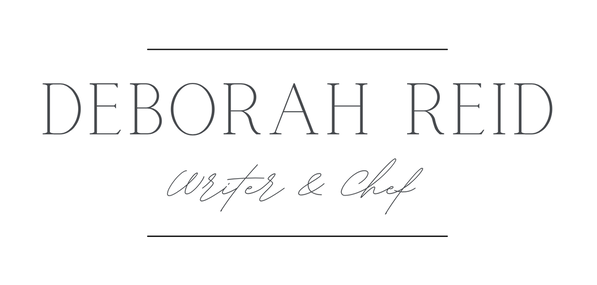
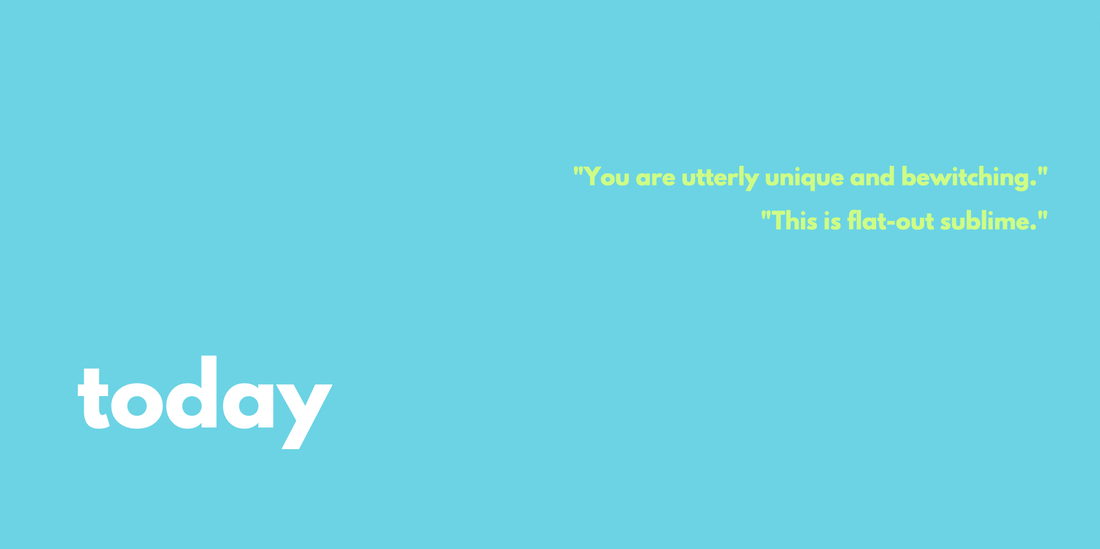
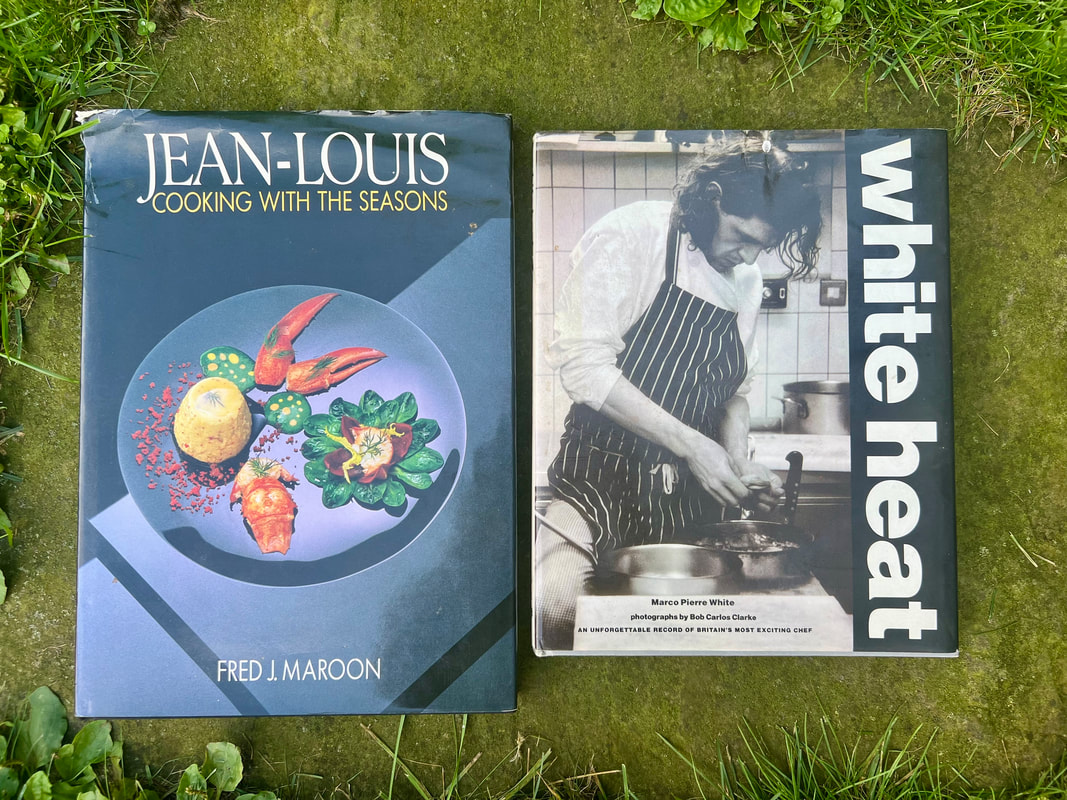
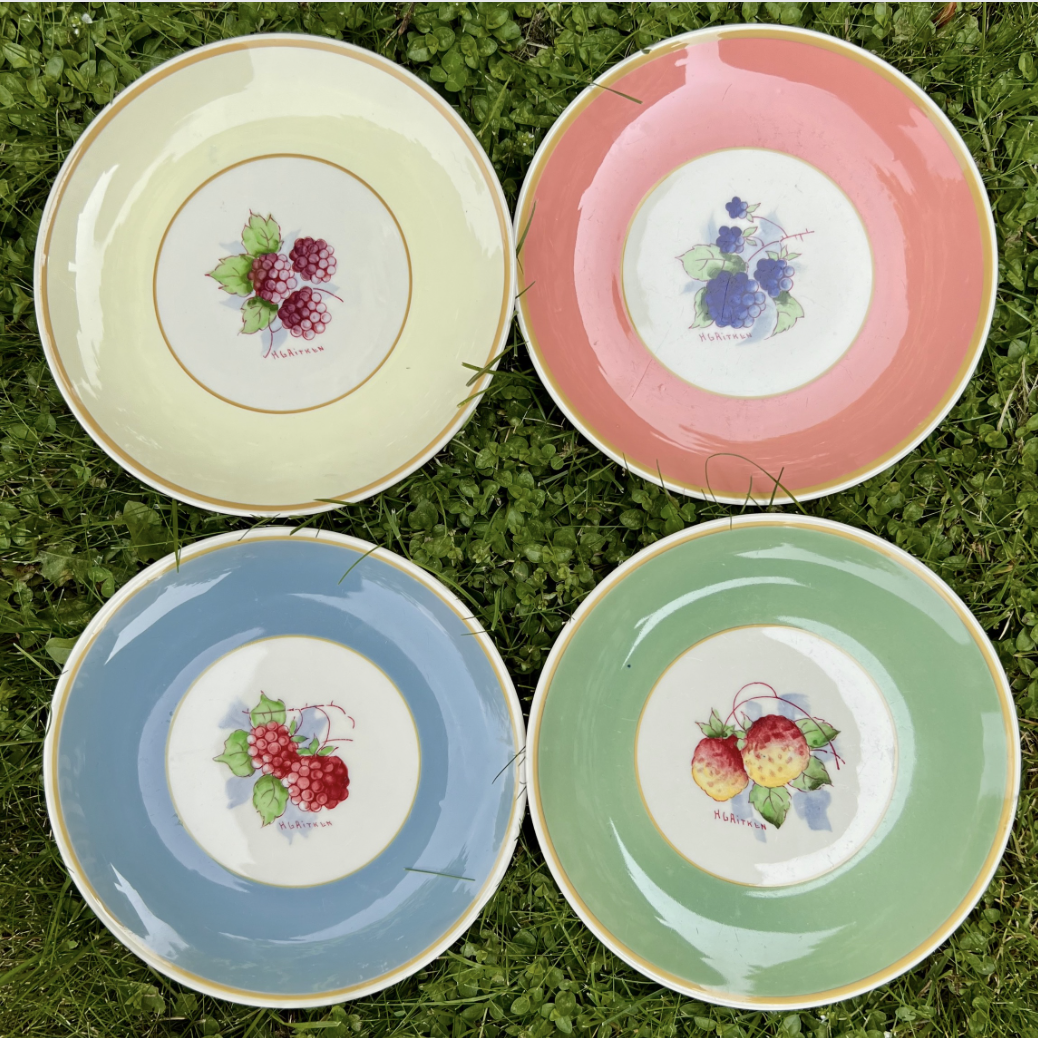
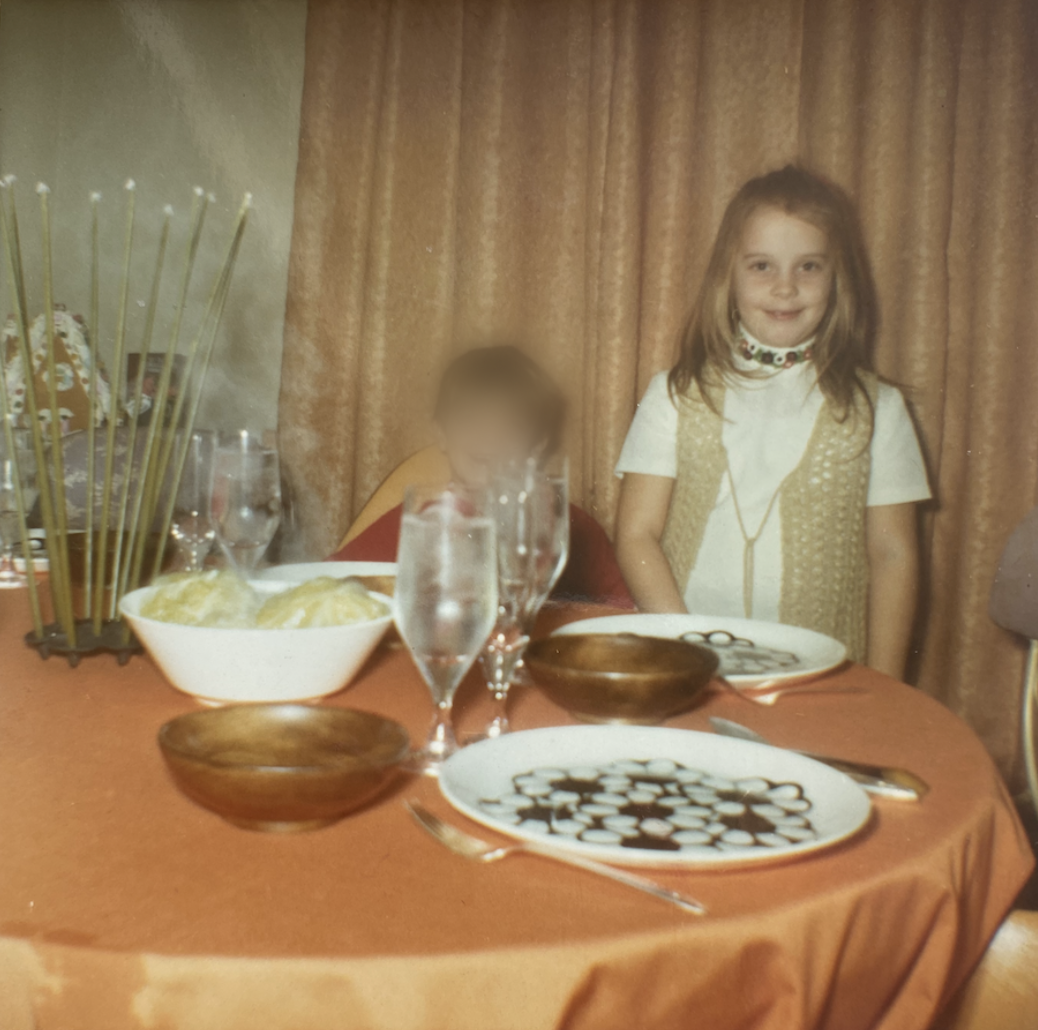
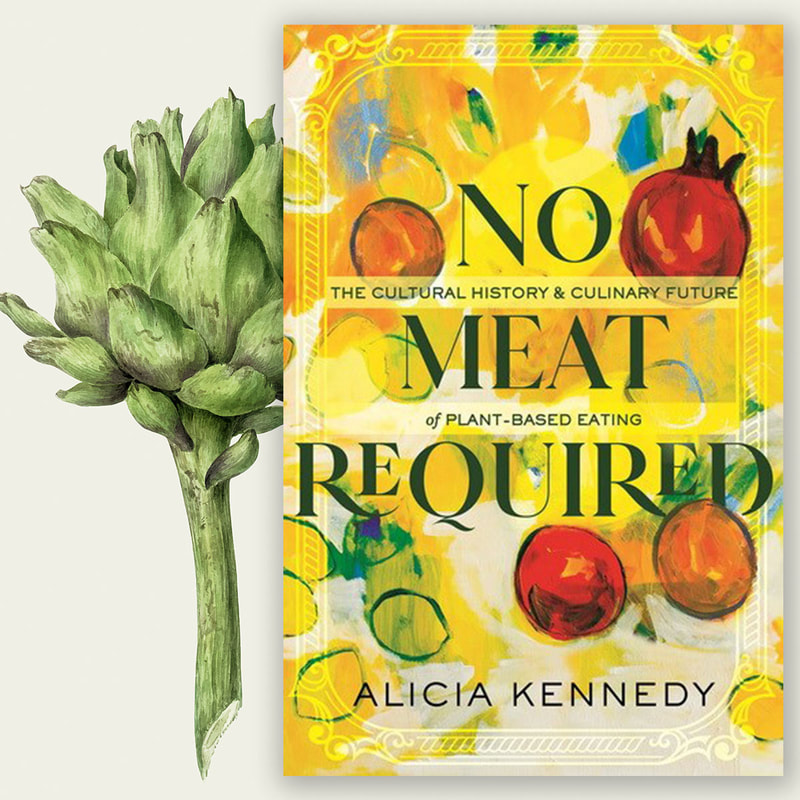
 RSS Feed
RSS Feed